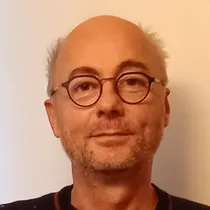- Accueil >
- Publications >
- Reuniting philosophy and science to advance cancer research
Reuniting philosophy and science to advance cancer research
Auteurs
Thomas Pradeu, Bertrand Daignan‐Fornier, Andrew Ewald, Pierre‐Luc Germain, Samir Okasha, Anya Plutynski, Sébastien Benzekry, Marta Bertolaso, Mina Bissell, Joel S. Brown, Benjamin Chin‐Yee, Ian Chin‐Yee, Hans Clevers, Laurent Cognet, Marie Darrason, Emmanuel Farge, Jean Feunteun, Jérôme Galon, Elodie Giroux, Sara Green, Fridolin Gross, Fanny Jaulin, Rob Knight, Ezio Laconi, Nicolas Larmonier, Carlo Maley, Alberto Mantovani, Violaine Moreau, Pierre Nassoy, Elena Rondeau, David Santamaria, Catherine M. Sawai, Andrei Seluanov, Gregory D. Sepich‐Poore, Vanja Sisirak, Eric Solary, Sarah Yvonnet, Lucie Laplane
Résumé
ABSTRACT
Cancers rely on multiple, heterogeneous processes at different scales, pertaining to many biomedical fields. Therefore, understanding cancer is necessarily an interdisciplinary task that requires placing specialised experimental and clinical research into a broader conceptual, theoretical, and methodological framework. Without such a framework, oncology will collect piecemeal results, with scant dialogue between the different scientific communities studying cancer. We argue that one important way forward in service of a more successful dialogue is through greater integration of applied sciences (experimental and clinical) with conceptual and theoretical approaches, informed by philosophical methods. By way of illustration, we explore six central themes: (
Membres


